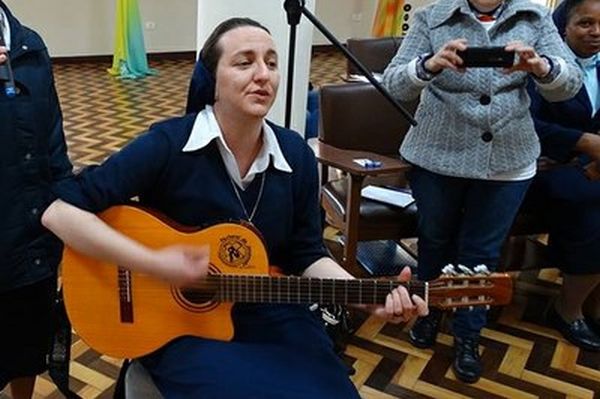

Week 7 - Water: a calling to the blessing of caring!
By Sr. Raquel de Fátima Colet
Reflection - Seven Weeks for Water 2018
Introduction
The seventh reflection of the of the "Seven Weeks for Water", of World Council of Churches’ Ecumenical Water Network, is by Sr. Raquel de Fátima Colet, a consecrated Catholic member of the Company of the Daughters of Charity of the Province of Curitiba/Paraná/Brasil. She is a member of the Ecumenical Movement of Curitiba (MOVEC). In the following reflection she relates the beatitudes in the context of respecting and protecting our waters. She says, “The Beatitudes (Matthew 5:1-12) present us with a path to follow Jesus, in the commitment to his Kingdom of love, justice and peace. From Latin America, from its exuberant nature and the lives of our peoples, today we want to proclaim the beatitudes of caring, translated into our prophetic participation in the promotion of a fair and equal access to water a universal gift and right”.
Text:
The Beatitudes (Matthew 5:1-12)
Reflection
When we say “happy” and “blessed”, we proclaim that our God is not indifferent to the cry of the little ones and of their causes, but that He makes the decision to intervene in their favor (Exodus 3:16b). In the current exodus experienced by our Common House, the integrity of the Common House is threatened by the interests of the pharaohs of the capital, who commercialize life and nature. In this paschal wait, we walk with our people in their journeys of life and faith, towards the earth soaked in milk and honey (Exodus 3:8), and of clear, preserved and shared water.
Happy are the poor in heart, our Amerindian peoples, indigenous to these lands and keepers of their abundant fresh water reserves. Theirs is the Kingdom of heaven because, keepers of the waters, they teach us that our bond with the earth is sacred.
Blessed is the active gentleness in so many religious groups and communities in this diverse continent. In the daily witnessing of their beliefs and their spiritual values, they help us cultivate a stance of hope when faced with the dormant conflicts related to accessing and using water. Land shall be their legacy because they invite us to non-violent, good living prophetic resistance.
Discussion questions:
- Which signs of the beatitudes of caring for water (experiences, projects, initiatives) can we identify in our local communities?
- What symbolic and real persecutions do we find in our pilgrimage for water justice?